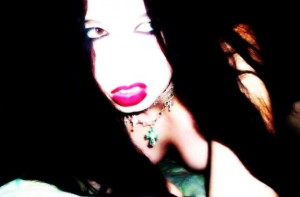Symptoms of Psychosexual Disorder
Contemporary society – or perhaps human nature- works in such a way that accountability or individual failures rarely rest on the shoulders of those who deserve it. Mistakes cannot be the fault of the individual; it must be your neighbor, the government, the stress caused by others, or the stars above that work against you. In other words, misgivings have a way of working their way from the external to affect the individual. Psychologists give some credibility to that argument – that is why nature versus nurture continues to haunt the field in a philosophical battle royale. However, when it comes to psychosexual disorders, it works conversely. Psychosexual disorders result in an anxiety and conflict over sex as natural sexual desires and feelings become unconsciously suppressed and avoided. It is the internal that begins to creep itself on the external. Psychosexual disorders originate in the mind, but show themselves through external behavioral symptoms, predominantly sexual dysfunction and perversions.
The origin of psychosexual disorders is debated. Many agree that childhood is the period of greatest importance, but that is not uniform and psychosexual disorders may have several origins depending on experiences. Some psychologists argue that external factors, such as sexual abuse during psychosexual development during childhood, are the primary reason for later anxieties and dysfunctions. Freud also placed particular focus on the external with his stages of healthy psychosexual development.

However, he viewed that these external events did not directly create a disorder within the child. Rather, the child, depending on the stage which he did not successfully resolve and under what circumstances, was bound to interpret this failure in his own way. Therefore, (s)he would express symptoms of psychosexual disorders in his own unique way. Therefore, based on the theory of Freud, symptoms of psychosexual disorders are unique to the individual.
Popular psychology subcategorizes psychosexual disorders into three parts: sexual dysfunctions, sexual perversions, and gender identity disorders. Each of these categories reflect themselves in unique ways. Sexual dysfunctions stand out not only because of how common they are, but because psychologists believe they are most misunderstood. Symptoms of sexual dysfunctions include a phobic avoidance of sex, a collapse in sexual arousal, impotence in men, or dyspareunia in women. Of course, medicine suggests that many of these symptoms of psychosexual disorders can be sourced as a result of physiological issues, such as obesity or stress. While that is often true, they are also frequently symptoms of something more deep-rooted. Anxieties regarding sex, after all, contradicts our basic nature that we have when we are fresh out of the womb as sexual entities, according to theorists such as Freud. That is not to say we are hedonist beasts even if we enjoy healthy psychosexual development. But our attitudes are channeled in such a way that does not bring about the depression and stress that accompanies psychosexual disorders.
[ad#downcont]Other forms of psychosexual disorders, such as sexual perversions – such as necrophilia, pedophilia, and voyeurism – and gender identity disorder are viewed as a symptom of something more deep-rooted too. Naturally, these behavioral symptoms of psychosexual disorders are not all alike in their ostracizing nature, as it would be difficult to want to place transexualism in the same lot as pedophilia. Nor are their power over the individual alike in all those who exhibit them. However, all sexual perversions are a result of psychological preferences – a result of a rejection of convention for reasons that need to be explored for them to be resolved. It is not an issue of whether they are “good” or “bad”, but psychosexual disorders are defined by anomalies. The stress, anxieties, guilt, worry, negative body image, and uncertainty that are tethered to them may have been enforced by external events during ones life, but ultimately these symptoms of psychosexual disorders are a result of mind over matter.
